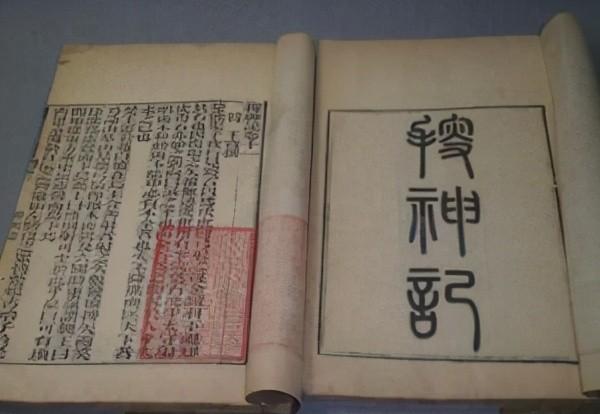Gan Bao was a famous literary scholar in the Eastern Jin Dynasty, and his hometown was a native of Xincai County, Henan. In the era of the Eastern Jin Dynasty, Emperor Yuan went to study history as a writer, and successively served as a Jiangyin County Ling, Shi'an Taishou, and Scattered Horse Changshu. In addition to the well-known Search for God Records, there are also works such as "Spring and Autumn Zuo Shi Yi Wai Biography", "Jin Ji", "Ganzi" and so on. Twenty volumes of the Jin Dynasty are very good history books, but they have been lost today. There are a total of thirty volumes of the Book of Search for Gods, which have been mostly lost in the Song Dynasty. The Book of Search for God that we see today was compiled by the Zhonghua Book Company in 1979 from Hu Yuanrui's Fayuan Zhulin and other various books of the Ming Dynasty.

Gan Bao was born in the Eastern Jin Dynasty, when Taoist and alchemy theories prevailed, and he preferred yin and yang techniques and loved to talk about the deeds of gods, ghosts, and spiritual changes, so he compiled thirty volumes of the Book of Searching for Gods. The now popular Search for God Records was printed and published from the Ming Dynasty's "Secret Book Collection Letter", and later in Zhang Haipeng's "Xuejin Discussion of the Original" as a base, and made a proofreading to become the best version of the Search God Record published by the Zhonghua Bookstore.
The era in which Gan Bao lived was precisely the era of great turmoil, on the one hand, the feudal door valve and the feudal system deepened the oppression of the poor masses by the privileges of the landlord bureaucracy, and on the other hand, the ethnic minorities who moved to the border areas further rose. The ruling class of the Eastern Jin Dynasty had no skills in governing the country, and in order to alleviate contradictions, it vigorously advocated Buddhism as a magic weapon for peace and declared Buddhism as the state religion. On the other hand, scholars and doctors preach theocratic taoism, and metaphysics talk as a strategy for gaining one's own fame or wisdom to protect oneself.
This social environment has spawned the popularity of many Zhiwei novels, which is an important stage in the origin of Chinese Zhiwei novels. Although Gan Bao's Search for God has some propaganda for superstition and existence of a certain amount of, it is still a treasure of art and reflecting the ideas of the time.
The Book of Search for God prepared the legendary novels of the Tang Dynasty and influenced the creation of many literary works in later generations. For example, Luo Guanzhong's "Romance of the Three Kingdoms" and Feng Menglong's "Three Words and Two Beats" both absorb some of the materials of this novel. The ideas written by Hong Mai's Yi Jian Zhi of the Song Dynasty and Ji Xiaolan's Notes on Reading Wei Caotang in the Qing Dynasty are all inspired by the Search for God.
Pu Songling's "Planting Pears" in Liaozhai Zhiyi is very similar to Xu Guang's seeded melon in the Book of Searching Gods. The story of Ou Yezi casting the general Mo Evil described in the Book of Search for God, but because he only presented a female sword to the King of Chu, he was killed instead, and finally his son Chibi took revenge. Lu Xun's new compilation of "Cast Sword" is based on this plot for creation.
The Book of Search for God also provided spiritual food for the creation of opera, such as the development of the Book of Search for God in the East China Sea Filial Piety by Guan Hanqing in the Yuan Dynasty. The Peking Opera "Virgin Slaying the Snake" was developed from Li Jizhong in the Book of Searching Gods. There is also the familiar Huangmei drama Tianxian matching is an improvement from the plot of "Dong Yong". As excellent novels inherited from that era, Soshoji and Xiaolin Guangji are rare literary treasures of the Chinese nation, and many of the current various fantasy novels are still taken from this work.